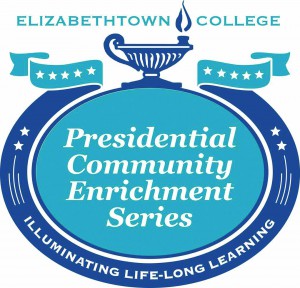 In October 2013 the U.S. government shutdown. More than 360 National Park Service sites were closed, preventing millions of tourists from visiting national parks, zoos and museums. Requests for passports, permits and federal loans were delayed. Veterans’ checks were not delivered, and federal employees were furloughed. As the national’s capital filled with uncollected garbage, at a rate of 500 tons a week, the United States failed to shine as an ideal democratic example for the world.
In October 2013 the U.S. government shutdown. More than 360 National Park Service sites were closed, preventing millions of tourists from visiting national parks, zoos and museums. Requests for passports, permits and federal loans were delayed. Veterans’ checks were not delivered, and federal employees were furloughed. As the national’s capital filled with uncollected garbage, at a rate of 500 tons a week, the United States failed to shine as an ideal democratic example for the world.
On Tuesday, Feb. 18, Dr. Kyle Kopko, Elizabethtown College assistant professor of political science and director of the prelaw program and legal studies presents “Government Shutdowns and Polarizing Politics.” Kopko’s discussion addresses what it meant for the future of the government and how the polarization and shutdown occurred.
“It’s dysfunctional in Washington,” said Dr. E. Fletcher McClellan, Dean of Faculty and professor of political science. “The division we see between the parties is unprecedented in the modern era.”
“This is the most polarized Congress in more than 150 years…This is the most polarized House of Representatives since 1879,” Kopko said. “This is the least productive Congress since 1947; there have been less laws passed.” Additionally, he said, there has been a rise in the Tea Party and, as it appeals to moderates, gerrymandering—a division into election districts with the purpose of giving one political party an electoral—is winning.
“If all the republicans vote one way, the democrats vote the other,” McClellan said. “There’s no political incentive to compromise.”
“No one can agree on how to balance a budget,” said Kopko, who referred to polarization as not wanting to talk, as well as the ‘demonization’ of the other side. Instead the government keeps raising the debt ceiling and credit limit. McClellan added that some people trace the polarization back to Bill Clinton’s presidency or even to Richard Nixon’s. The distinctly separated parties are working against one another, he noted.
What concerns McClellan the most, he said, is opposing parties’ refusal to accept the legitimacy of election results. This was previously seen with Nixon and the Watergate Scandal, as well as the proposed impeachment of Clinton. “It affects the people’s ability to influence the government,” he said. “If the government is not responsive to them, it breaks the connection between the people and the government.”
“This may be controversial, but sovereignty lies with the people,” Kopko said, explaining what he sees as people’s connection to the government. “Are we to blame, as well? We are not voting as much. We’re more apathetic, yet we are the ones who send these individuals to Washington.”
McClellan said he believes public opinion and the media have an effect on the political party division. “People select information sources that agree with their opinions,” he pointed out. “No one wants to be exposed to opposition.” People often determine their social interactions based on political party affiliations, ensuring they surround themselves with similar beliefs, he said. As citizens remain loyal to their party’s belief, passionate people are elected into office. People so passionate they will not stand to hear opposition. “You never hear someone say ‘I feel so moderate, I want to run for office,” Kopko said.
The current state of the government cannot be labeled as good or bad, McClellan said. “There’s scholarship to show that good can come from a divided government,” he said. Some people, he said, are happy with an unproductive government, as it does not impose on citizen’s freedom or create additional problems.
McClellan said he is not hopeful for the foreseeable future. “Dr. Kopko is an optimistic fellow, maybe he’ll have a better solution,” he said. Kopko, however, agrees in short-term expectations. “I do not see a significant amount of changes in legislation occurring in the next two years,” he said, projecting that some level of shock will need to occur to stimulate change, such as the 2016 presidential election.
Kopko’s “Government Shutdowns and Polarizing Politics.” is a part of the College’s Presidential Community Enrichment Series, which offers lifelong learning opportunities to members of the local community in a collegiate environment.
All sessions, held in the Susquehanna Room at Elizabethtown College’s Myer Hall, begin with lunch at noon, followed by a brief lecture with questions and discussion. The event ends by 2 p.m.
The Presidential Community Enrichment Series is open to the public; however, registration is required. Kopko’s presentation is $10 and registration can be completed by contacting iaenrichseries@etown.edu.

